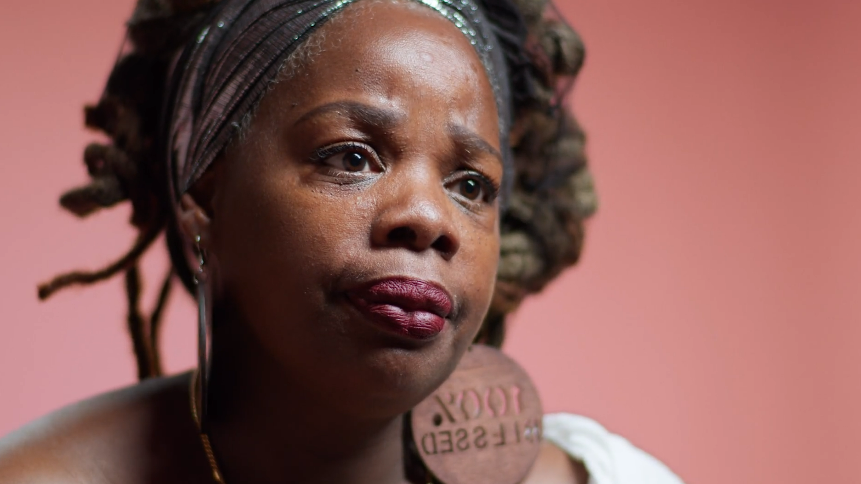
The Black charity boss at the centre of the latest royal racism row has said she felt her Rastafarian pride was under attack at the Buckingham Palace event that she almost didn’t attend because of the British Empire’s links to slavery.
Ngozi Fulani described her “auction block moment” - a reference to her enslaved African ancestors who were bought and sold from auction blocks by imperialists - prior to attending a Violence Against Women and Girls reception hosted by Camilla, the Queen Consort, on Tuesday.
Lady Susan, the Prince of Wales’s 83-year-old godmother, resigned from the household on Wednesday after she repeatedly challenged Ms Fulani about where she was from when she said she was British.
Ms Fulani, founder of Sistah Space, the UK’s leading domestic abuse charity for Black women, is a Rastafarian woman whose African ancestors were enslaved in the royal family’s name at the height of the British Empire.
Ms Fulani did not feel that comfortable going to Buckingham Palace but ultimately decided to attend as a representative of her charity.
“In terms of our history, I did have what I call an “auction block moment” [prior to attending the event],” Ms Fulani told The Independent.
“I’m aware that the palace itself does not reflect us. There are pictures of people who don’t look like us on the walls, there is no hint of Black people at the highest level within the structures. Historically, the only time Black people were in that place was to be of service.
“I’m very mindful of the history of these spaces and well aware of the conversation around racism in the royal family too. However, my role was to represent Sistah Space and to promote the 16 days of activism. So, yeah; that was what I was focusing on.”
Ms Fulani described herself as a passionate advocate for human rights who is proud of her ancestry and embraces opportunities to reflect this through her attire.
However, during her visit to the palace, the Sistah Space CEO said that this attracted the wrong kind of attention resulting in the interrogation from Lady Hussey.

“When I’m going to certain places, I’m very proud of my culture and my background, so I will wear something authentic. I think maybe I stood out somehow,” Ms Fulani added.
“But there were a lot of people that stood out. And as a couple of white colleagues said to me ‘nobody asked me what nationality I was’.
“This doesn’t happen to other people, it doesn’t happen to people who are white. Nobody’s going to question their background, identity or their right to claim identity.”
Despite her ordeal and attempts from racist trolls to justify what happened to her, Ms Fulani remains steadfast.
“I have the right to go anywhere - and I will stand tall anywhere,” she said. “I walk into any place; the whole world belongs to me, as it does to everybody else.
“I had on a red, gold and green headband, a cowrie shell necklace and the ankh (an ancient Egyptian symbol meaning “life” that some Black people, and Rastafarians, wear in recognition of its sanctity). I think that’s what drew Lady Hussey because there were so many people in the place.
“Any time I go to these spaces, I must bring my history with me; I walk with my ancestors without apology. And that was what, I think, was under attack.”
The latest incident follows allegations of royal racism from Prince Harry and Meghan during a bombshell interview with Oprah Winfrey in March 2021.
It comes as it emerged that the royal family likely ignored serious far-right threats to Meghan’s life, confirmed by the Met Police last week, by denying the couple and their children access to security during UK visits.

The British royal family was involved in transporting and selling at least 12 million African people for profit for centuries, with Elizabeth I involved in the lucrative dealings of John Hawkins, one of Britain’s first slave traders in the 16th century.
When his first adventure proved successful and his ships returned laden with goods, she supported his future expeditions by providing vessels to carry the human cargo.
The connections between the royal family and slavery continued with Charles II, who encouraged the expansion of the slave trade.
He granted a charter to a group of men, the Royal Adventurers, who later became the Royal African Company – and the monarch invested his private funds in the venture.
When slavery was abolished in 1834, compensation was paid to former slave owners while individuals and entities, such as the royal family, that amassed astronomical wealth through the brutal venture of enslaving Africans retained their wealth.
Those who were enslaved, their families and former British colonies have never received reparations.







